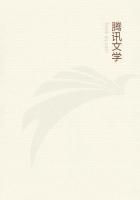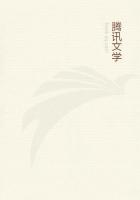One of the special points in such cases often is, that a guardian or his steward has been ruining the villains in the ward's manors by destroying their waynage.* Of course, the protection of the peasant's prosperity, guaranteed by the courts in such trials, is wholly due to a consideration of the interests of the ward; and the care taken of villains is exactly parallel to the attention bestowed upon oaks and elms. Still, the notion of waynage is in itself a peculiar and an important one, and whatever its ultimate origin may be, it points to a civil condition which does not quite fall within the lines of feudal law.
Another anomaly is supplied by Britton. After putting the case as strongly as possible against serfs, after treating them as mere chattels to be given and sold, he adds, 'But as bondmen are annexed to the freehold of the lord, they are not devisable by testament, and therefore Holy Church can take no cognisance of them in Court Christian, although devised in testament.' (I. 197)The exclusion of villains is not peculiar to them; they share it with the greater part of landed possessions.' As all the courts of civil jurisdiction had been prohibited from holding jurisdiction as to testamentary matters, and the Ecclesiastical Courts were not permitted to exercise jurisdiction as to any question relating to freehold, there was no court which could properly take cognisance of a testamentary gift of land as such.'* The point to be noted is, that villains are held to be annexed to the freehold, although in theory they ought to be treated as chattels. The contradiction gives us another instance of the peculiar modification of personal servitude by the territorial element. The serf is not a colonus, he is not bound up with any particular homestead or plot of land, but he is considered primarily as a cultivator under manorial organisation, and for this reason there is a limitation on the lord's power of alienating him. Let it be understood, however, that the limitation in this case does not come before us as a remnant of independent rights of the peasant. It is imposed by those interests of the feudal suzerain and of the kin which precluded the possibility of alienating land by devise.*An inquiry into the condition of villains would be altogether incomplete, if it did not touch on the questions of villain tenure and villain services. Both are intimately connected with personal status, as may be seen from the very names, and both have to be very carefully distinguished from it. I have had to speak of prescription as a source of villainage. Opinions were very uncertain in this respect, and yet, from the mere legal point of view, there ought not to have been any difficulty about the matter. Bracton takes his stand firmly on the fundamental difference between status and tenure in order to distinguish clearly between serfs and free men in a servile position.* The villain is a man belonging to his lord personally; a villain holding (villenagium) is land held at the will of the lord, without any certainty as to title or term of enjoyment, as to kind or amount of services. Serfs are mostly, though not necessarily, found on villain land; it does not follow that all those seated on villain land are serfs. Free men are constantly seen taking up a villenagium; they do not lose by it in personal condition; they have no protection against the lord, if he choose to alter their services or oust them from the holding, but, on the other hand, they are free to go when they please. There is still less reason to treat as serfs such free peasants as are subjected to base services, i.e. to the same kind of services and payments as the villains, but on certain conditions, not more and not less. Whatever the customs may be, if they are certain, not only the person holding by them but the plot he is using are free, and the tenure may be defended at law.*Such are the fundamental positions in Bracton's treatise, and there can be no doubt that they are borne out in a general way by legal practice. But if from the general we turn to the particular, if we analyse the thirteenth-century decisions which are at the bottom of Bracton's teaching, we shall find in many cases notions cropping up, which do not at all coincide with the received views on the subject. In fact we come across many apparent contradictions which can be attributed only to a state of fermentation and transition in the law of the thirteenth century.
Martin of Bestenover's case is used by Bracton in his treatise as illustrating the view that tenure has no influence on status.* It was a long litigation, or rather a series of litigations. Already in the first year of King John's reign we hear of a final concord between John of Montacute and Martin of Bestenover as to a hundred acres held by the latter.* The tenant is ejected however, and brings an assize of mort d'ancestor against Beatrice of Montacute, who, as holding in dower, vouches her son John to warranty. The latter excepts against Martin as a villain. A jury by consent of the parties is called in, and we have their verdict reported three times in different records.*They say that Martin's father Ailfric held of John Montacute's father a hundred acres of land and fifty sheep besides, for which he had to pay 20s. a year, to be tallaged reasonably, when the lord tallaged his subjects, and that he was not allowed to give his daughter away in marriage before making a fine to the lord according to agreement. We do not know the decision of the judges in John's time, but both from the tenor of the verdict and from what followed, we may conclude that Martin succeeded in vindicating his right to the land. Proceedings break out again at the beginning of Henry III's reign.















